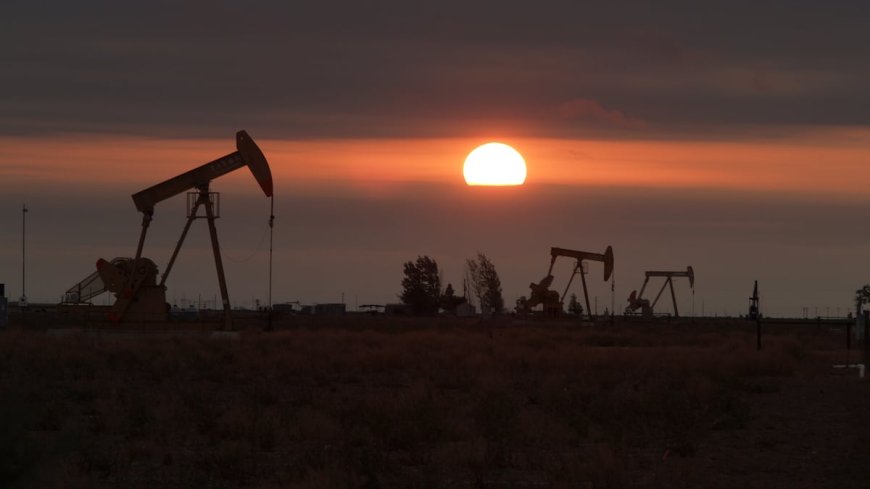Is It Still Possible to Limit Warming to 1.5°C?
As world leaders gather at COP29 in Azerbaijan to discuss climate action, scientists are questioning whether keeping global warming limited to 1.5 degrees Celsius above pre-industrial averages is even still within reach. Already, warming is slated to be above 1.5 degrees Celsius for the 2024 calendar year for the first time, according to a recent […] The post Is It Still Possible to Limit Warming to 1.5°C? appeared first on EcoWatch.

As world leaders gather at COP29 in Azerbaijan to discuss climate action, scientists are questioning whether keeping global warming limited to 1.5 degrees Celsius above pre-industrial averages is even still within reach.
Already, warming is slated to be above 1.5 degrees Celsius for the 2024 calendar year for the first time, according to a recent report by the European Union’s Copernicus Climate Change Service (C3S). That report also noted that 2024 is likely to be the warmest year on record, even hotter than 2023, which currently holds the record for hottest year. Further, from June 2023 through May 2024, temperatures reached more than 1.63 degrees Celsius above pre-industrial averages for 12 consecutive months.
Now, the science shows that limiting warming to the 1.5 degrees Celsius goal outlined in the Paris Agreement is becoming less and less likely. Some experts warn that we may already be past the point of limiting warming.
“The goal to avoid exceeding 1.5C is deader than a doornail. It’s almost impossible to avoid at this point because we’ve just waited too long to act,” Zeke Hausfather, climate research lead at Stripe and a research scientist at Berkeley Earth, told The Guardian. “We are speeding past the 1.5C line an accelerating way and that will continue until global emissions stop climbing.”
The 1.5 degrees Celsius target was set in the Paris Agreement, an international treaty negotiated at the UN Climate Change Conference (COP21) in 2015 and signed in 2016. The target was set to avoid catastrophic impacts of climate change, such as more frequent and intense events like flooding, hurricanes, droughts, heat waves and wildfires.
As a 2022 study found, passing 1.5 degrees Celsius of warming could also lead to multiple climate tipping points, including ocean circulation breakdowns, Amazon rainforest dieback, massive coral reef die-offs, sea ice and ice sheet collapses and more.
The UN noted that monthly and even annual breaches of the 1.5-degree limit do not necessarily mean we’ve passed the Paris Agreement benchmark, but we are getting closer to breaching it in the long term, which is what could lead to irreversible impacts.
Richard Betts, climate scientist at the University of Exeter in the UK, told NPR that passing the benchmark is “a matter of when, not if.”
Andrew Jarvis, a climate scientist at Lancaster University, told NPR that the world was likely to pass the target within the next 10 years, but current methods of measuring for warming compared to pre-industrial times are focused on 20-year timeframes that look backward, meaning we could miss the mark well before we realize it through measurements.
According to the United Nations Environment Programme (UNEP)’s Emissions Gap Report, released in October 2024, the world will need to reduce emissions by 42% by 2030 and 57% by 2035 to stay within the 1.5-degree benchmark. A separate report released last week found that current policies will lead to a rise, not a reduction, in emissions that could lead to 2.7 degrees Celsius of warming by 2100.
Ultimately, scientists have said that immediate and immense climate action will be needed to minimize warming as much as possible, with every fraction of a degree of warming avoided making a meaningful difference.
“We are edging ever closer to tipping points in the climate system that we won’t be able to come back from; it’s uncertain when they will arrive, they are almost like monsters in the darkness,” said Grahame Madge, UK Met Office spokesperson, as reported by The Guardian. “If we can’t achieve 1.5C, it will be better to get 1.6C than 1.7C, which will be better than getting 2C or more.”
The post Is It Still Possible to Limit Warming to 1.5°C? appeared first on EcoWatch.
What's Your Reaction?








































